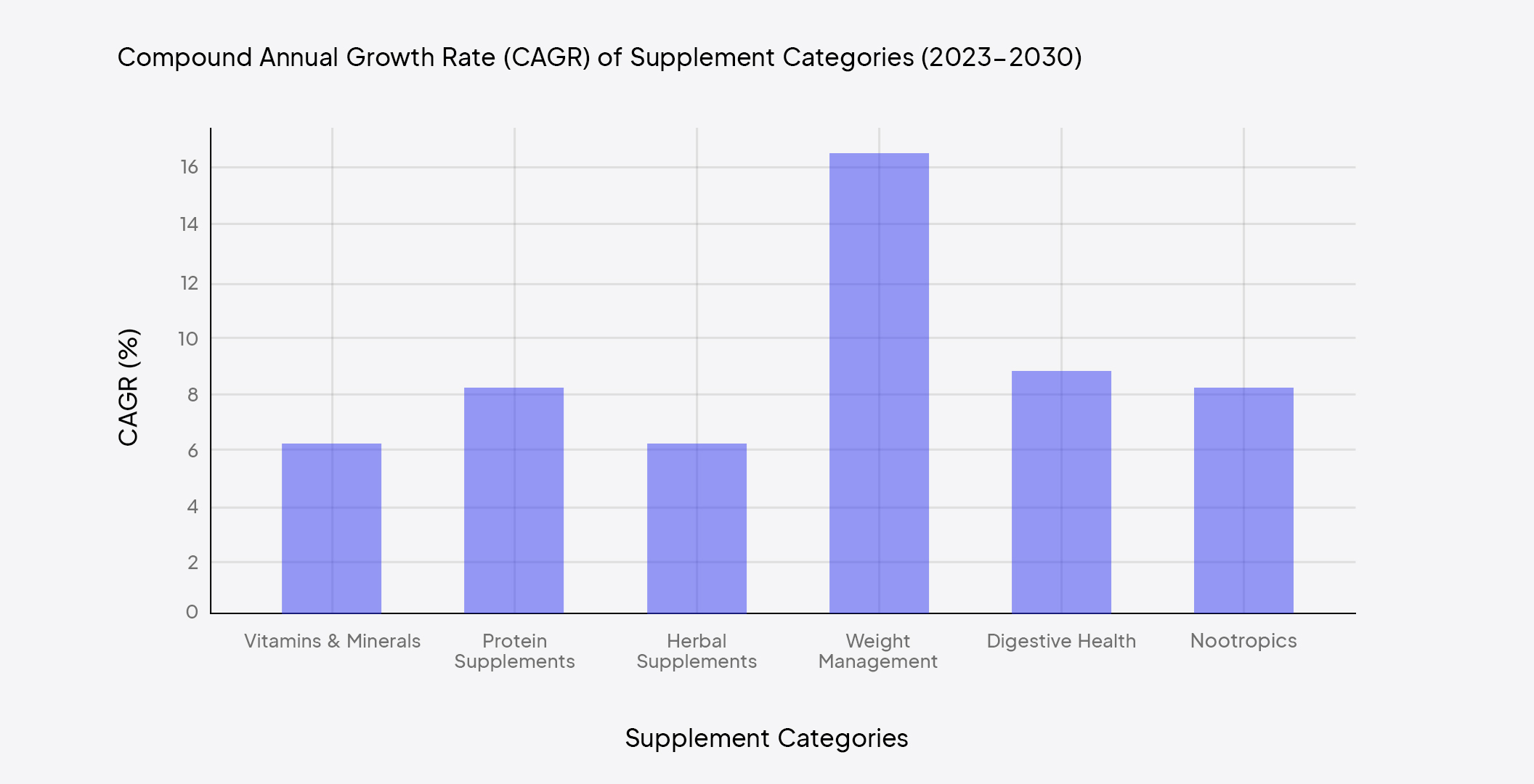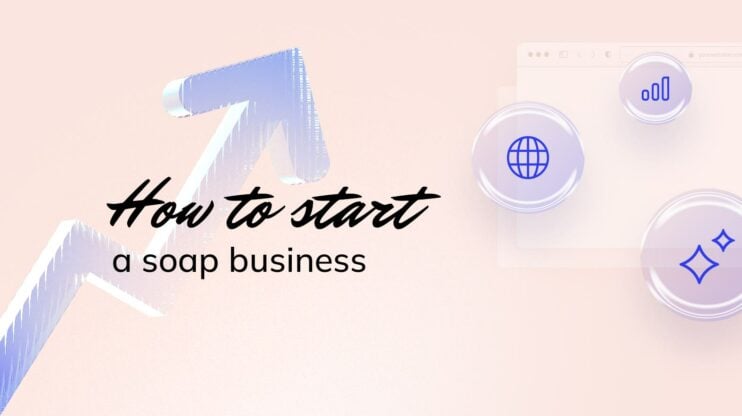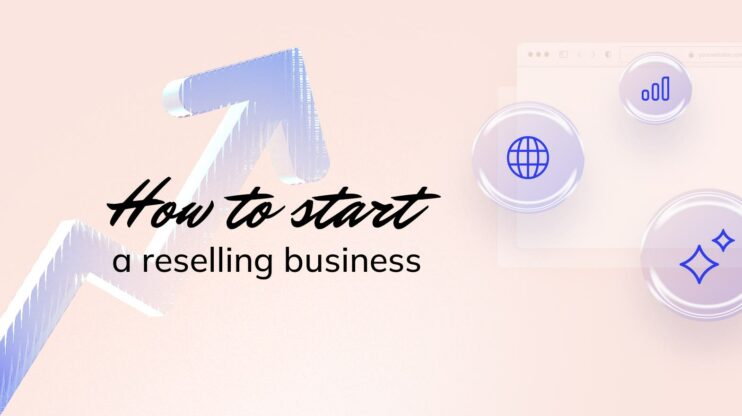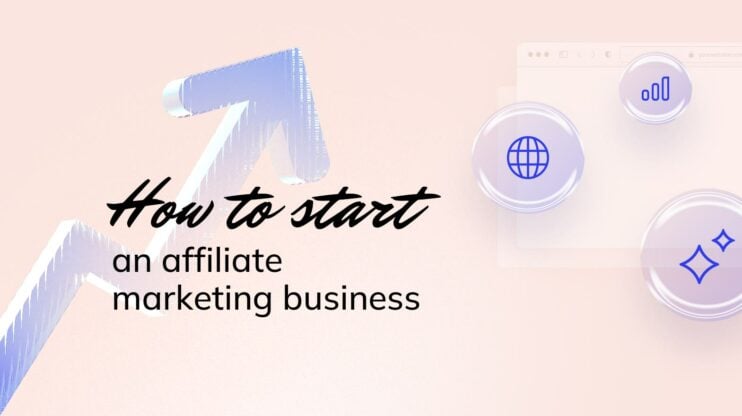Health is something I deeply value, yet I used to view supplements with skepticism. This changed when I discovered a Huberman Lab podcast episode where Dr. Huberman discusses rational approaches to supplementation – his insights showed me that supplements aren’t just food substitutes, but tools for achieving specific goals like better sleep and focus. This led me to dive deep into the world of supplements, discovering a global market expected to be worth USD 300 billion by 2028. My research on how to sell supplements online revealed key insights about starting and growing in this market.
I created this guide to cover all the essential elements I discovered: choosing your supplement type, navigating regulations, and building a distinctive brand in the crowded online marketplace. I’ll share practical steps to help your supplement business stand out and connect with customers who need your products.
Create your custom online store in minutes with 10Web AI Ecommerce Website Builder and take your business online. 
Looking to sell online?
Current online supplements selling market
Every Monday morning with coffee, I checked Amazon’s Best Sellers ranks in the supplements category and explored Statista’s ecommerce data to understand market patterns. I also browsed iHerb’s trending products section to see what supplements moved up or down their sales charts each week.
Online supplement sales grow consistently. Sales data shows consumers spend more on vitamins, minerals, and specialty supplements each quarter. My research shows two key drivers: people want better health outcomes and they prefer shopping online.
The market numbers tell a specific story. Bodybuilding supplements hit $22.31 billion in 2023. They’ll reach $38.12 billion by 2030, growing at 7.9% yearly. The infant formula segment shows even stronger performance – starting at $81.72 billion in 2024 and reaching $178.83 billion by 2032.
Now let’s look at the sales patterns across platforms. Amazon controls 70-80% of vitamin and supplement purchases. Direct-to-consumer brands gain ground by building their own shopping experiences, and when social media influencers mention products, sales jump within days.
Buyers showed clear preferences in 2024. They want supplements for specific goals – muscle growth, weight loss, immune health. Natural products with saffron and lion’s mane mushroom sell well. Traditional vitamins maintain steady sales when backed by quality certifications.
Types of supplements you can sell online
I analyzed the supplement market across digital marketplaces. The business splits into three main segments: fitness performance, daily wellness, and specialized health formulas. Each type serves different customers, giving sellers various ways to grow their business.
| Category | Supplement Type | Target Audience |
| Daily Wellness | Vitamins and minerals | General health-conscious consumers, aging adults, people with deficiencies |
| Herbal and botanical | Consumers seeking natural remedies, holistic health enthusiasts | |
| Digestive health | People with gut issues, those looking to improve digestion | |
| Immunity-boosting | Health-conscious individuals, people prone to illness | |
| Fitness Performance | Protein supplements | Athletes, bodybuilders, fitness enthusiasts, weight management seekers |
| Weight management | Individuals aiming for weight loss, fitness enthusiasts | |
| Specialized Health Formulas | Nootropics & brain health | Students, professionals, aging adults |
| Joint & bone health | Aging individuals, athletes, arthritis sufferers | |
| Men’s & women’s health | Individuals with specific hormonal and reproductive health needs | |
| Sleep & stress support | Individuals with sleep disorders, stressed professionals |
1. Vitamins and minerals
Basic vitamins and minerals stay popular year after year. Multivitamins give the body everything it needs, while vitamin D, B vitamins, magnesium, and zinc target specific health goals. People take multivitamins for overall wellness, single vitamins to fix deficiencies, and immune support products to stay healthy.
Market insights: The global market reached $146.14 billion in 2023. Analysis shows it will hit $250.81 billion by 2032, growing 6.20% yearly.
2. Protein supplements
Protein powders keep flying off store shelves every day. Athletes build muscle with whey and casein, while plant-based buyers choose pea and hemp proteins. People drink protein shakes after workouts to help muscles recover faster. Many others use these powders to replace 1 meal or manage their weight.
Market insights: Sales reached $5.83 billion in 2022. Growth remains strong at 8% each year through 2030 as more people add protein supplements to their daily routine.
3. Herbal and botanical supplements
Plants and herbs work as natural medicine in supplement form. Turmeric fights inflammation, ashwagandha calms stress, and ginseng boosts brain power. People choose these natural options instead of synthetic drugs to solve health problems.
Market insights: The numbers show growing trust in plant-based supplements. The market will reach $110.1 billion by 2028. Sales keep climbing steadily at 6.2% each year as more people turn to natural solutions.
4. Weight management supplements
Weight loss supplement sales show record numbers. Although Ozempic’s market entry shifted traditional purchase patterns, fat burners and appetite suppressants maintain steady sales through established ingredients: green tea extract, CLA, and garcinia cambogia. Exercise trends and metabolism boosters keep sales climbing as customers chase their fitness goals.
Market insights: The market hit $33.4 billion in 2020. Growth stays strong at 16.6% each year through 2028.
5. Digestive health supplements
Gut health supplements work hard to keep digestive organs happy. Probiotics are beneficial living bacteria that support gut health. Prebiotics are dietary fibers that nourish and help those beneficial bacteria grow. Digestive enzymes help your body break down and absorb nutrients from food. These products help people who deal with bloating, stomach pain, and digestion issues every day.
Market insights: The global market hit $10.32 billion in 2020 and is expected to grow at a rate of 8.6% through 2028.
6. Nootropics and brain health supplements
Brain boosters (nootropics) help people think better and remember more. Common ingredients like omega-3 fats, L-theanine, and Bacopa help the brain work at its best. Students cram for tests with them, office workers stay sharp during long meetings, and older adults keep their minds fresh.
Market insights: Companies sold $7.21 billion worth of these products in 2020. Sales keep climbing steadily, with an 8% jump expected each year through 2028.
7. Immunity-boosting supplements
People want stronger immune systems now more than ever. Vitamin C, elderberry, and zinc supplements work together to fight off infections and seasonal sickness. Taking these supplements helps prevent illness before it starts.
Market insights: Health supplement companies sold $16.32 billion worth of immune products in 2020. The market keeps growing rapidly, with an 11.3% increase expected each year through 2028.
8. Joint and bone health supplements
Joint health products help keep people moving comfortably each day. Glucosamine and chondroitin work on joint pain, while collagen builds stronger bones and cartilage. Older adults stay active longer, athletes recover faster, and people with stiff joints find relief using these supplements.
Market insights: Sales reached $2.1 billion in 2020. The steady 6.2% growth each year through 2028 proves more people want to protect their joints and stay mobile.
9. Men’s and women’s health supplements
Men and women need different supplements for their unique health needs. Women take prenatal vitamins during pregnancy and use menopause support products later in life. Men buy testosterone boosters for energy and prostate health formulas as they age. Each product targets specific health concerns based on gender and age.
Market insights: The women’s health market shows steady growth in supplement sales. Companies sold $5.7 billion worth of women’s supplements in 2020. The market keeps expanding at 4.9% each year through 2028 as more women focus on their specific health needs.
10. Sleep and stress support supplements
Sleep and stress relief supplements help people rest better at night. Melatonin signals the body to sleep, magnesium calms nerves, and adaptogens fight stress naturally. Poor sleep affects many people, making these natural solutions more important than ever.
Market insights: The numbers prove sleep problems keep growing. The market will jump from $7.6 billion in 2024 to $12.9 billion by 2034. Sales climb 5.5% each year as stress levels rise and more people struggle to get good sleep.

Regulations of selling supplements online
In the U.S., the Food and Drug Administration (FDA) regulates supplements under the Dietary Supplement Health and Education Act (DSHEA) of 1994. The FDA watches over supplement sales with a lighter touch than drug sales. Companies can sell supplements without getting approval first, but safety still comes first in the supplement market. Companies must prove their products are safe and use honest labels. The FDA steps in quickly when products cause harm or companies make false promises.
Labeling requirements (ingredients, claims, and disclosures)
Supplement labels need specific details on a Supplement Facts panel. This panel shows what ingredients are in the product, how much to take, and daily values where applicable.
The FDA has clear rules about what supplement companies can say. Companies cannot claim their products fix diseases or health problems. This would turn the supplement into a drug product.
Supplement companies can make basic statements about how their products work in the body, like saying a supplement “helps with immune function.” These statements require supporting evidence. The label must also include specific FDA words: “This statement has not been evaluated by the FDA. This product is not intended to diagnose, treat, cure, or prevent any disease.“
Manufacturing and Good Manufacturing Practices (GMPs)
Supplement companies must follow strict manufacturing rules called Current Good Manufacturing Practices (CGMPs). These rules help make sure products are safe and high quality.
The rules focus on three main areas. First, companies need to get their ingredients from trustworthy sources. Second, they must test products properly to find any harmful substances. Third, they need to keep detailed records of everything they do.
Some companies take extra steps by getting certified by outside groups. NSF, USP, and GMP certifications show the company follows the rules closely. These certifications help customers know which products they can trust.
In the supplement industry, reputation is built on quality. The entrepreneurs in this field testify to this. Ed Turney says,
No amount of clever branding or advertising can make up for a product that doesn’t deliver real results.
Claims and advertising restrictions
Supplement marketing needs to follow Federal Trade Commission rules. These rules apply to websites, social media posts, and all other promotional content.
Companies must back up any statements about their supplements with real science. Making up benefits or stretching the truth breaks the rules.
Customer reviews and endorsements must be honest. Real people need to share their actual experiences. Making false promises about “miracle cures” or amazing results will get companies in trouble with regulators.
Selling internationally: compliance with global regulations
Companies selling supplements to different countries must follow each country’s rules. The European Union has rules from EFSA (European Food Safety Authority), while Australia follows TGA (Therapeutic Goods Administration) guidelines.
Each region has different requirements. Some ingredients allowed in one country might be banned in another. Label rules and health claims also change between countries.
If you are planning to sell globally, I would recommend working with local experts who know these rules. Getting legal help before selling internationally prevents costly mistakes and regulatory problems.
State and local regulations
In addition to federal laws, some U.S. states have additional requirements for supplement sales. States like California (Prop 65) mandate warnings on products containing certain chemicals linked to cancer or reproductive harm. Always check for state-specific regulations when selling supplements online.
Handling customer complaints and adverse event reporting
Supplement companies need a clear plan for customer problems and safety issues. When serious adverse events happen from taking supplements, the FDA must know within 15 days.
Serious problems include things like hospital visits or allergic reactions that come from using supplements. Companies must write down all these issues carefully.
Quick responses to customer complaints and good record keeping help prevent legal troubles. The company needs to track everything and deal with problems right away.
Ecommerce platform policies and marketplace compliance
Online marketplaces like Amazon, eBay, and Shopify have their own supplement selling policies. Amazon, for instance, requires specific documentation, including Certificates of Analysis (COAs) and proof of GMP compliance. Violating these platform policies can lead to product removal or account suspension.
How to sell supplements online
As someone with a background in business, marketing, and experience working with product-based businesses, I know that selling supplements online demands precise planning and execution. A successful online supplement business needs four key things: brand vision, market research, a solid business plan and a good product.
Building your business foundation: Brand and vision
Your brand starts with visual basics. Pick a name people remember easily. Design a simple logo. Choose 2-3 colors for everything you create. These elements help customers spot your business quickly.
Vision comes next. Write down what makes your business different. Maybe you focus on local products or exceptional customer service. This vision guides your choices – from product selection to customer emails.
Your website needs this same clear identity. Use your brand colors. Write product descriptions that match your vision (and are legally compliant). Show customers exactly what they get when ordering. Post shipping times and return policies where people find them easily. And try to keep your site active.
Doing market research
Now that the basics of your business are done, we can move to the foundation. Any marketing course you take will tell you: know your customers first. Who buys supplements? Study their age, income, and buying habits. Look at supplement reviews to see what matters to them. Pay attention to comments about price, quality, and results.
Next, you need to check what sells well. Use online tools to track popular supplements. Watch how search interest changes over time. Here are some tools and resources that can be helpful:
- Google Trends: To check search popularity.
- Surveys and polls: For direct customer feedback.
- Amazon tools: Like Product Database and Product Tracker to find and track products.
Study your competition carefully. Visit other supplement stores. Note their products, prices, and how they talk to customers. This shows you market gaps to fill.
Bobby Hewitt, host of the Health Supplement Business Mastery, emphasizes the importance of starting with a well-defined niche before expanding. As he stated in a discussion on supplement market trends:
Instead of trying to cater to everyone, focus on a specific segment. Once you establish credibility in one area, you can introduce complementary products and grow strategically.
Ask potential customers what they want. Run simple online surveys. Join supplement discussion groups. Real feedback helps you choose the right products.
Finally, do not forget to learn supplement laws too. Each country has rules about ingredients and claims. Follow them exactly – they protect your business and customers.
Writing a business plan
Once your market research results are ready, it’s time to conceptualize your findings and ideas in a well written business plan.
Products make or break supplement businesses. Quality ingredients and consistent manufacturing create supplements people trust and buy again. Low-quality products lead to returns, complaints, and damage your reputation.
Start with your core idea. Write down what makes your supplement business special. Maybe you focus on natural ingredients or target specific health goals.
Know your numbers. Calculate startup costs, product prices, and expected sales. Include shipping costs and marketing expenses. This shows if your business can make money.
Plan daily operations. List where you’ll get products, how you’ll ship orders, and who handles customer questions. Simple, clear processes keep things running smoothly.
Create your custom online store in minutes with 10Web AI Ecommerce Website Builder and take your business online. 
Looking to sell online?
Best platforms for selling supplements online
My recommendation for picking a sales platform comes down to your needs: your current size, plans to grow or stay small, and your tech skills. Let’s look at some platforms and what works or doesn’t work with each one.
| Platform | Pros | Cons |
| Amazon |
|
|
| eBay |
|
|
| Own website |
|
|
| Shopify |
|
|
| Etsy |
|
|
| Bonanza |
|
|
| Social media shops |
|
|
Creating an ecommerce website to sell supplements online
If you end up choosing to have your own website, 10Web would be the go-to platform. It has everything you need to sell online and it makes creating an ecommerce website to sell supplements simple and efficient. By using AI-powered tools, you can generate and customize your site in minutes, set up payment methods, and manage customers and orders smoothly.
Generating an online store with the AI Website Builder
- Visit the 10Web AI Website Builder – Enter a short description of your business and click Generate Your Website to start the process.
- Provide your store information – Add your company name and refine your business description if needed.
- Define product categories – Enter your product categories and let AI automatically generate a structured website for you.
- Refine your website structure – Adjust the suggested layout if necessary, knowing you can always customize it later.
- Personalize your design – Experiment with fonts, colors, and styles to match your brand identity.
- Generate your website – Click Generate to create your fully designed website in seconds.
You can always edit the result or generate it again. Either way, this AI-powered process saves you time, allowing you to focus more on the core operations of your business.
Not only creating, but managing your site stays secure and simple with 10Web. The dashboard gives you clear views of orders and customer data while keeping everything protected.
10Web handles security automatically, especially for payments. They include SSL protection that encrypts customer credit card details and personal information during transmission. You activate this protection with a few clicks, keeping customer data safe and building trust in your store.
Create your custom online store in minutes with 10Web AI Ecommerce Website Builder and take your business online. 
Looking to sell online?
Developing a plan for advertising and promotion
I often see marketing become hard after launch. 60% of small business owners struggle to find new customers. So, I have gathered proven ways to grow your supplement brand through social media, marketing, and smart operations.
Building a social media presence
Social media is a powerful tool to showcase supplements, engage with customers, and build brand trust. Utilize platforms like Instagram, TikTok, Facebook, and Pinterest to reach your target audience. As Guy Kawasaki, Chief Evangelist of Canva, stated,
Instagram works best for showing your supplements through photos and demos. TikTok helps spread educational videos about how supplements work. Facebook lets customers talk about their health journeys. Pinterest attracts people planning their wellness routines.
Trust develops through consistent content posting. Share details about ingredients and how you make supplements. Show real customer results. Respond to comments and share customer posts.
| Platform | Best Use Cases |
| Product images, stories, reels, influencer collaborations | |
| TikTok | Short-form videos, trends, user-generated content |
| Groups, ads, community building | |
| Infographics, blog promotion, visual storytelling |
Engagement tips:
- Post consistently with high-quality images and videos.
- Use stories, reels, and live sessions for real-time engagement.
- Partner with influencers and micro-influencers to expand reach.
- Join health and wellness groups to engage with potential customers.
Doing content marketing for authority
Only social media might not be enough. I see building brand authority through content marketing. Good content brings more website visitors and helps search rankings. Bloomhouse Marketing verifies:
| Content Type | Purpose |
| Blog posts | Educate on health, fitness, and supplement benefits |
| Videos | Demonstrate usage, testimonials, and behind-the-scenes |
| Infographics | Explain nutrition facts and supplement benefits visually |
| Quizzes & polls | Engage users and recommend personalized products |
To maximize impact:
- Optimize content with relevant keywords.
- Offer actionable health tips and supplement guides.
- Regularly update content to stay relevant.
- Encourage audience interaction through comments and shares.
Optimizing customer acquisition and retention
I focus on two key steps for growing brands: finding new customers and keeping them. Email campaigns and targeted ads work together to reach the right people. Sending product updates, health tips, and special offers, together with smart ad targeting bring interested people to your doorstep. And after that, what’s left is to keep them satisfied. As Michael LeBoeuf captured this approach well:
| Channel | Best Practices |
| Email marketing | Personalized offers, welcome sequences, abandoned cart reminders |
| Google Shopping ads | Target high-intent buyers with optimized product listings |
| Facebook & Instagram ads | Retarget visitors and expand audience reach |
I recommend utilizing User-Generated Content (UGC) creating authentic brand connections. Customer reviews, photos, and social posts show real results. This builds more trust than standard marketing.
Encourage customers to share their supplement journey. Ask for reviews and before-after photos. Share their success stories on your social channels. Each real customer story strengthens your brand’s credibility.
Pricing strategies for profitability
Finally, let’s address pricing models. Smart pricing helps supplement brands succeed. Setting the right prices keeps your business competitive and profitable.
| Pricing strategy | How it works |
| Competitive pricing | Aligns with market trends to attract price-sensitive customers |
| Bundle pricing | Encourages larger purchases by offering discounted packages |
| Subscription models | Provides recurring revenue and customer retention |
| Loyalty programs | Rewards repeat customers with points and discounts |
| Free shipping threshold | Increases cart value by offering free shipping above a set amount |
Conclusion
I started studying supplements because of pure skepticism. I discovered new business models, laws, regulations, and most importantly, businesses trying to improve health and quality of life.
Building a supplements business takes real work. Proper certifications and clear product information matter most. Testing proves customers stay loyal when they trust your products and process.
Simple systems and honest communication create lasting results. The market grows bigger each quarter, but success comes from staying focused on helping customers achieve their health goals.
FAQ
Is it legal to sell supplements online? Do you need FDA approval to sell supplements? Do I need a license to sell supplements online? What are best selling supplements? Can you make money selling supplements? How to start an online supplement business? Do people buy supplements online? Is it legal to mail supplements?













